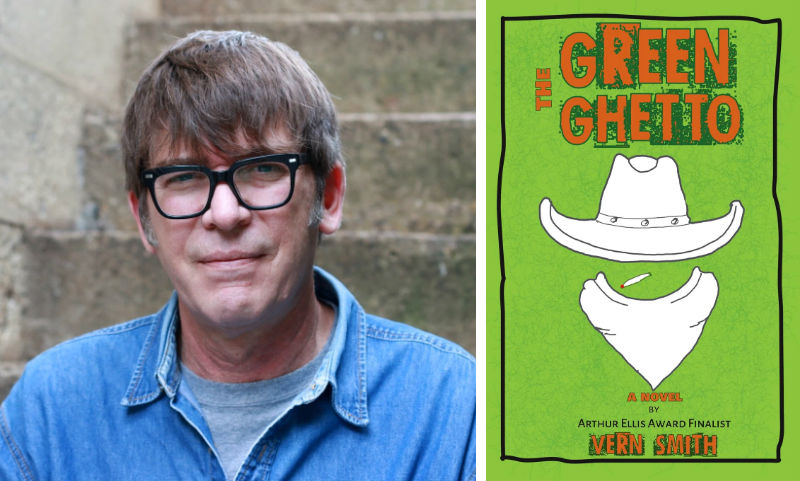Vern Smith’s novel "The Green Ghetto" aims to be an urban Western set in Detroit

“Overnight I found my love affair with Detroit slipping away. My worldview changed," said author Vern Smith, speaking of his experience in the wake of the September 11, 2001, terrorist attacks in New York City.
Growing up in Windsor, Ontario, Smith said, “Detroit was my second hometown. I started sneaking over the border when I was 11 and found my culture there. Can’t tell you how many live shows I’ve seen there because it was so easy to access pre-9/11. Then it changed so abruptly and [the two cities] were being kept apart.”
Smith’s novel The Green Ghetto takes place a year after the New York attacks, which was about the same time the former journalist and broadcaster started working on short stories.
“My inspiration boiled down to three things," he said. "I heard an American public service announcement equating small-time drug dealers to the 9/11 terrorists; I wanted to write about the very much underreported green ghettos [concentrated areas where marijuana is grown] that have existed in Detroit for some time; and I knew I was writing an urban western so I set it in the place I am familiar with.”
The book's titular subject is “not represented in fiction to any degree that I could find, and that’s where you find stories -- in places where other people aren’t,” Smith says. “And the topic leads to a larger discussion about ghettoization and how they are different than what people see on TV.”
The Green Ghetto follows Mitchell Hosowich, a “dope growing, mail order cowboy” who is happily tending his crops in parts of Detroit that have become rural again. Bureaucrats call it the “green ghetto,” but to Hosowich it’s his way of life -- until two DEA agents end up dead and almost five dozen marijuana plants go missing. This sets up Hosowich for an intercountry chase to avoid law enforcement and get his missing crop back.
“Marijuana politics have evolved since I started writing the book,” Smith said. “So although the book is set in 2002, it works as a period piece … and the events remain relevant. … [P]eople are too high on the access we now have to legal marijuana to notice that there are still about a hundred ways to get arrested for it. People are talking about these progressive new laws but aren’t addressing arrests and criminalization that continues.”
To that end, Smith praises Ann Arbor’s lenient marijuana laws as the place “where every government needs to start. … We hear the word ‘legalization,’ but the reality is that we remain in a state of hysteria [over marijuana]. We have yet to come up with a rational, humane policy and balance of compassion and liability … so even with enhanced decriminalization in the United States, there is still a marked increase [in arrests and criminal liability]. In Canada, we have a new law where if, for example, a 19-year-old teenager hands a joint to a 17-year-old, then the 19-year-old faces up to 14 years in prison. This is not to say that we want 19-year-old kids passing out joints, but we don’t give violent criminals 14 years. Nor do we have a way to measure impairment while driving in the same way that we can measure DUIs. This is going to put a lot of people into compromising positions who might otherwise think that we are in a new, progressive era of marijuana regulation.”
And that’s the main idea Smith hopes people take away from his book: “It’s about the universal theme of being compromised. We are all compromised in jobs, in relationships, in life. I hope my readers think about how they are compromised both personally and professionally.”
Patti F. Smith is a special education teacher and writer who lives in Ann Arbor with her husband.
Vern Smith reads from "The Green Ghetto" at Literati on Thursday, February 28 at 7 pm.


































